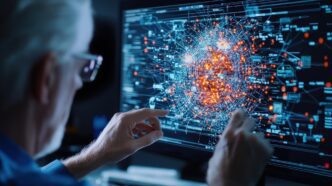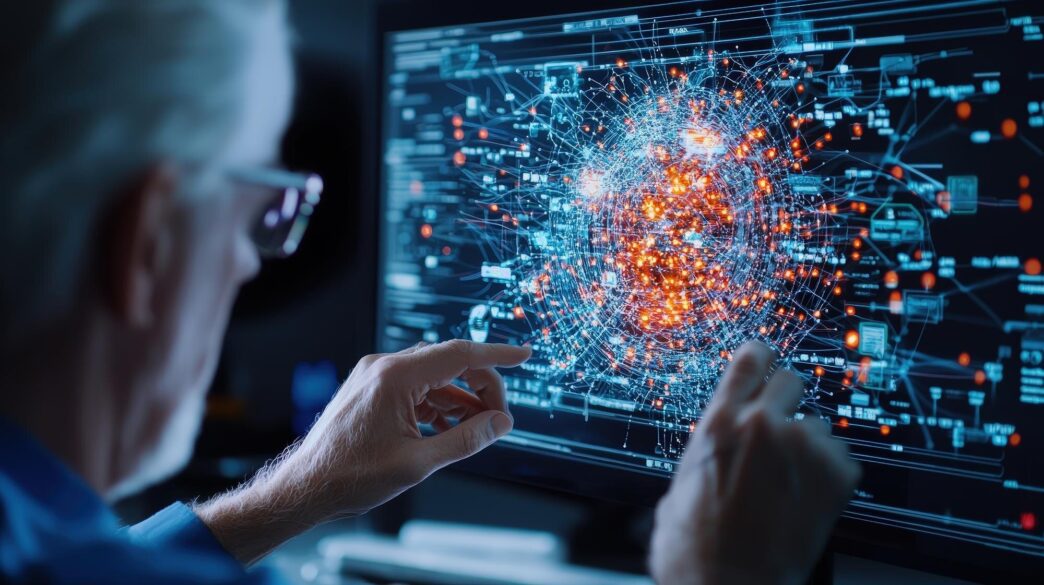Executive Summary
The Trajectory So Far
The Business Implication
Stakeholder Perspectives
Artificial Intelligence is rapidly transforming how businesses approach innovation and growth, moving beyond incremental improvements to orchestrate a sophisticated “symphony of experiments” across various operational domains. This powerful capability allows enterprises to systematically test hypotheses, optimize processes, and discover novel solutions at unprecedented speed and scale, ultimately driving more informed decision-making and sustainable competitive advantage. From refining customer experiences and personalizing marketing campaigns to optimizing complex supply chains and accelerating product development, AI provides the intelligence layer necessary to design, execute, analyze, and iterate on experiments with a precision and efficiency previously unattainable by human-led efforts alone, fundamentally reshaping the landscape of business strategy and execution.
The Evolution of Business Experimentation
Traditionally, business experimentation has been a labor-intensive and often slow process. Companies might run A/B tests on website layouts or marketing messages, but these were often isolated efforts, limited in scope and frequency.
The sheer volume of variables, the complexity of data analysis, and the time required to draw statistically significant conclusions often made comprehensive experimentation impractical. This limited approach meant that many potential optimizations and innovations remained undiscovered, relying instead on intuition or slow, manual iteration.
AI as the Maestro of Experiments
AI’s capacity to process vast datasets, identify intricate patterns, and make probabilistic predictions makes it an ideal orchestrator for a continuous cycle of experimentation. It transforms experimentation from a series of discrete, manual tests into a dynamic, interconnected, and self-optimizing system.
This orchestration involves several critical stages, each enhanced or automated by AI, creating a seamless flow from hypothesis generation to actionable insights.
Hypothesis Generation and Discovery
One of the most significant contributions of AI is its ability to generate novel hypotheses. Instead of relying solely on human intuition or past experience, machine learning algorithms can analyze historical data, market trends, customer behavior, and competitor activities to suggest potential areas for improvement or innovation.
AI can identify subtle correlations and causal relationships that human analysts might overlook, leading to more creative and impactful experiment ideas. This proactive approach ensures that businesses are testing the most promising ideas, not just the most obvious ones.
Intelligent Experiment Design
Designing effective experiments requires careful consideration of variables, control groups, sample sizes, and duration. AI can optimize these parameters to ensure statistical robustness and resource efficiency.
For instance, an AI system can determine the optimal number of participants needed for an A/B test to achieve statistical significance, or suggest the most relevant segments for a personalized marketing experiment. This precision minimizes wasted resources and maximizes the reliability of results.
Automated Execution and Monitoring
AI can automate the deployment and monitoring of experiments across various platforms and channels. Whether it’s dynamically adjusting website content, rolling out different pricing strategies, or testing variations in a manufacturing process, AI can manage the entire execution lifecycle.
Real-time monitoring capabilities allow AI to track performance metrics, detect anomalies, and even pause or adjust experiments if unforeseen issues arise. This ensures that experiments run smoothly and data is collected accurately.
Real-time Analysis and Interpretation
The bottleneck in traditional experimentation often lies in the analysis phase. AI-powered analytics tools can process incoming data in real-time, instantly identifying significant trends, correlations, and causal impacts.
These systems can automatically generate reports, visualize data, and even provide natural language explanations of findings, making complex insights accessible to business users. This rapid analysis shortens the learning loop, allowing for quicker iteration and decision-making.
Iterative Optimization and Recommendation
Perhaps the most powerful aspect of AI’s orchestration is its ability to create a continuous feedback loop. Based on the results of completed experiments, AI can automatically refine existing models, generate new hypotheses, or recommend subsequent experiments.
This iterative process allows businesses to progressively optimize their strategies, products, and services without constant human intervention. The system learns and adapts, continuously improving performance over time.
Transformative Business Applications
The applications of AI-orchestrated experimentation span across virtually every business function, unlocking new avenues for growth and efficiency.
Marketing and Customer Experience
In marketing, AI can orchestrate personalized campaigns by testing different messaging, visuals, and channels for various customer segments. It can optimize conversion funnels by continuously experimenting with website layouts, call-to-action buttons, and checkout processes.
For customer experience, AI helps test new features in applications, tweak user interfaces, and even personalize content recommendations, ensuring a continuously improving and tailored user journey.
Product Development and Innovation
AI accelerates product development by enabling rapid prototyping and testing of new features or product variations. It can analyze user feedback and experimental results to guide product roadmaps, ensuring that resources are allocated to features that deliver the most value.
This allows companies to innovate faster, reducing the time-to-market for successful products and services, and minimizing the risk of investing in features that users don’t want.
Supply Chain and Operations
In complex operational environments, AI can orchestrate experiments to optimize logistics routes, inventory levels, and production schedules. By testing different parameters in a controlled manner, businesses can identify the most efficient configurations and reduce operational costs.
For example, an AI might test different warehouse layouts or delivery schedules to find the optimal balance between speed and cost, dynamically adjusting based on real-world data.
Challenges and Considerations
While the promise of AI-orchestrated experimentation is immense, businesses must also navigate potential challenges. Data quality is paramount; AI systems are only as good as the data they consume, so robust data collection and cleansing processes are essential.
Ethical considerations, particularly in personalized experimentation involving customer data, require careful attention to privacy and fairness. Finally, human oversight remains crucial; AI is a powerful tool, but strategic direction, ethical boundaries, and interpretation of nuanced results still benefit from human intelligence and judgment.
The Future of Business Agility
The ability of AI to orchestrate a symphony of experiments is fundamentally reshaping how businesses learn, adapt, and grow. By automating and optimizing the entire experimental lifecycle, AI empowers organizations to move with unprecedented agility and precision.
This continuous learning engine allows companies to stay ahead of market shifts, discover new opportunities, and consistently deliver superior value to customers, ensuring that innovation is not an occasional event but a core, ongoing operational capability.








